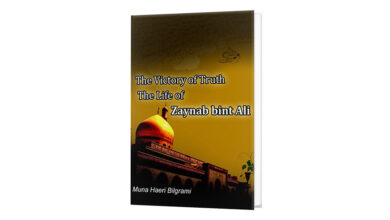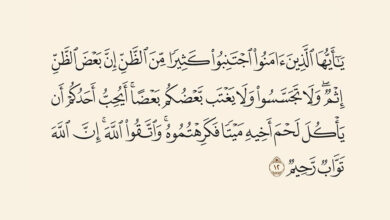
Eid al-Fiṭr (Arabic: عيد الفِطر) is the first day of the month of Shawwal and one of the greatest religious holidays in Islamic tradition. “Fitr” means opening and since in this day Muslims break one month of fasting is called Eid al-Fitr. There are some verses and hadiths that mention the importance of this day. Fasting is forbidden on this day and Muslims hold Eid prayer. Paying Zakat al-Fitra is obligatory for Muslims on this day. This day is usually followed by official holidays in Islamic countries.
Meaning of Fitr
The meaning of the word “Fitr” (Arabic: فِطر) is “opening (of something)”. The word “Infatarat” (Arabic: إنفَطَرَت) in the following verse is derived from a similar root with the word “Fitr”: إِذَا السَّمَاءُ انفَطَرَتْ; “When the sky is rent apart
It is also mentioned that “Tatafattarat” (Arabic: تَفَطَّرَت) and “Infatarat” have the same meaning and “Iftar” (Arabic: إِفطار) and “Fitr” (Arabic: فِطر) are from the same root since the fasting person opens his mouth to eat at sunset and on the day of Eid al-Fitr.
Determination
Eid al-Fitr is the first day of Shawwal; thus, by seeing the new moon of the month of Shawwal on the 29th of Ramadan or after 30 days of Ramadan, Eid al-Fitr is confirmed.
According to some hadith, the month of Ramadan is always 30 days and will never be less. Some of scholars of the past supported these hadiths. However, some hadiths say that the month of Ramadan like other months can be 29 or 30 days. Most jurists support these hadiths.
In the Qur’an
Exegetes of the Qur’an have said that the phrase “لِتُکبِّرُوا اللَّـهَ” (translation: magnify God) in Qur’an 2:185 is about the Takbirs recommended on the eve of Eid al-Fitr.
According to hadiths, the words تَزَکیٰ and فَصَلَّیٰ in the two verses “قَدْ أَفْلَحَ مَن تَزَکیٰ” [“Felicitous is he who purifies himself,”] and “وَ ذَکرَ اسْمَ رَبِّهِ فَصَلَّیٰ” [“celebrates the Name of his Lord, and prays.”] mean to give Zakat al-Fitra and praying the Eid Prayer.
Eid al-Fitr in Hadiths
- It is quoted from Jabir who quoted from Imam al-Baqir (a) and he (a) quoted from the Prophet (s) saying, “when the first of Shawwal comes, the caller will call ‘O believers! Rush to your rewards in the morning!” He (a) then said, “O Jabir! Rewards of God are not [like] the rewards of kings.” And he (s) said, “That day is the day of rewards.”
- The Prophet (s) said, “angels on the day of Eid stand at the alleys and paths and say, ‘rush to the Generous Lord who gives great blessings and forgives great sins.”
- In some Eids, Imam ‘Ali (a) said, “This is Eid of the one, God has accepted his fasting and worships and every day in which God is not disobeyed is Eid.”
- Imam Hasan al-Mujtaba (a) looked at some people who were happy and laughed; then he (a) turned to his companions and said, ‘God, the Almighty, created the month of Ramadan as a field for the competition of his creatures so that through obeying God, they excel each other towards His happiness. Some excelled and won, and some left behind and lost. Thus, it is so surprising one who is frivolously playful and laughing on the day the good-doers are rewarded and those who fall behind lose. By God, I swear that if the veils are removed, the good-doer will engage in his good-doing and the evil-doer will be taken captive in his evil-doing.”
- Imam al-Rida (a) said, “The day of Fitr is appointed as Eid so that Muslims have a gathering and come out for the sake of God and praise Him for the blessings they have been given; and the day of Eid is the day of gathering, day of breaking the fasting, day of giving Zakat, day of happiness and day of worship; and it is the first day of the year in which eating and drinking is permissible since the month of Ramadan is the first month of the year for the people of truth. So, God wanted them to have a gathering to praise the Lord and on this day, saying Takbir in the prayer is more than other days because Takbir is glorifying God and praising Him for His blessings as He has said, ‘and magnify Allah for guiding you, and that you may give thanks.’ (2:185) and in that day, 12 Takbirs have been instructed to be said, of which 7 have to be said in the first Rak’a and 5 Takbirs in the second Rak’a, and they have not been made equal since it is recommended that the obligatory prayer follows 7 Takbirs. Therefore, the first Rak’a begins with 7 Takbirs. And there are 5 Takbirs in the second Rak’a, since Takbirat al-Ihram for all the prayers during one day are 5 Takbirs and because Takbirs in each of the two Rak’as be odd.”
Rulings and Manners
Eve of Eid al-Fitr
- Reciting supplication and the Qur’an and doing prayer. Imam ‘Ali (a) said, “See if you can observe the eve of Eid al-Fitr, Eid al-Adha, etc. and in these nights recite supplications and the Qur’an and do prayers a lot.”
- On the eve of the first day of Shawwal, reciting the supplication of Moon Sighting upon seeing the new moon is recommended.
- Ziyarah of Imam al-Husayn (a) is recommended on the eve of Eid al-Fitr.
- Doing ghusl is recommended on this night. It is narrated that it is recommended to do ghusl before the sunset of the eve of Eid al-Fitr when one finds out it is the eve of the Eid. It is also narrated and recommended to do ghusl at the late night of the eve of Eid al-Fitr.
- According to a famous opinion of late scholars, obligatory time for Zakat al-Fitra at the sunset of the eve of Eid al-Fitr. Some have considered its time as the sunrise of the Eid.
- Prayer of Eid: Imam al-Sadiq (a) quoted from Imam Ali (a), “anyone who does two Rak’as of prayer, at the first Rak’a of which one must read the Surat al-Fatiha once and the Surat al-Tawhid a thousand times and in the second Rak’a he must read the Surat al-Fatiha and the Surat al-Tawhid once and would not ask God anything unless he will receive it.”
- Saying Takbirs after the prayers: (quoted from Mu’awiya b. Ammar) I heard from Imam al-Sadiq (a) said, “There are Takbirs in the Eid al-Fitr.” I said, “when?” he (a) said, “In the Maghrib prayer on the eve of the Eid al-Fitr and in the Fajr prayer in the morning of the Eid al-Fitr and in the prayer of the Eid al-Fitr. Then there be no more. And this is the word of God that says, ‘so that you may complete the number, and magnify Allah for guiding you,’ and Takbir is saying ‘Allah akbar, Allah akbar, La ilah illa Allah wa Allah akbar, wa lillah al-hamd ‘ala ma hadana, wa lah al-shukr ‘ala ma awlana.” اللهُ اکبر، اللهُ اکبر، لا إله إلا اللهُ و اللهُ اکبر، و لله الحمد علی ما هدانا، و له الشکر علی ما اولانا
- Ihya (night vigil); Imam al-Kazim (a) said, “‘Ali b. Abi Talib (a) said, ‘This makes me happy that anyone during the year releases himself (for worship) at four nights: the eve of Eid al-Fitr, the eve of Eid al-Adha, the eve of mid-Sha’ban and the eve of the first of Rajab.” Imam al-Baqir (a) said, “my father, ‘Ali b. al-Husayn (a) stayed in the mosque on the eve of Eid al-Fitr and prayed until morning and kept the night vigil and said, ‘O my son! This night is not less important than the night of Qadr.'”
Day of Eid al-Fitr
- Among the highly recommended actions of the day of Eid al-Fitr is doing ghusl, which can be done after Fajr, but there is a disagreement about the time of Zuhr prayer or the sunset being the latest time it can be done.
- Holding Eid prayer is recommended in the Age of Occultation, but during the presence of Imams (a), it is obligatory.
- It is recommended to eat something especially dates, before the prayer of Eid al-Fitr.
- Saying Takbirs as instructed is recommended after Maghrib prayer on the eve of Eid and also in the Fajr prayer in the morning of Eid and in the prayer of the Eid.
- Fasting on the day of Eid al-Fitr is forbidden. Reciting the Nudba supplication and also expanding the eating for the family are recommended.
- Traveling on the day of Eid after the sunrise before holding the prayer of Eid (in case of being obligatory) is forbidden; otherwise, it is disliked.




